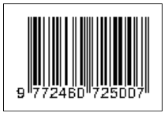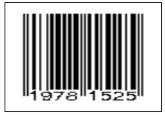Pengembangan Data Warehouse Menggunakan Pendekatan Data-Driven untuk Membantu Pengelolaan SDM
Mujiono Mujiono(1*), Aina Musdholifah(2)
(1) Badan Kepegawaian Daerah Kota Tarakan, Jl.Kalimantan No.1 SKIP
(2) Jurusan Ilmu Komputer, FMIPA UGM, Yogyakarta
(*) Corresponding Author
Abstract
Keywords
Full Text:
PDFReferences
Ashari, E.T., 2010, Reformasi Pengelolaan SDM Aparatur, Prasyarat Tata Kelola Birokrasi yang Baik, Borneo Administrator, 6, 2, 1 – 17.
Anonim, 2009, BKD Kota Tarakan Terunggul dalam Mengelola Kepegawaian, TD Edisi No.5/II, Agustus 2009, Tersedia di http://diklataparatur.blogspot .com/2009/11/bkd-kota-tarakan-terunggul-dalam.html [17 September 2014].
Mocka, B. dan Leka, D., 2013, Optimizing Data Warehouse, Journal of Science, Innovation and New Technology, 1, 6, 51 – 58.
Coman, M., 2009, Business Intelligence and E-Governance, LESIJ, 16, 1, 484 – 491.
Velicanu, M. dan Matei, G., 2007, Building a Data Warehouse step by step, Informatica Economica, 2, 42, 83-89.
Chaudhuri, S. dan Dayal, U., 1997, An Overview of Data Warehousing and OLAP Technology, ACM Sigmod Record, 1, 26, 65 – 74.
Turban, E., Aronson, J.E. dan Liang, T., 2007, Decision Support Systems and Intelligent Systems, Edisi 7, Prentice Hall, New Jersey.
Imhoff, C., Galemmo, N. dan Geiger J.G., 2003, Mastering Data Warehouse Design Relational and Dimensional Techniques, Wiley Publishing, Inc., Indianapolis.
Ballard, C., Herreman, D., Schau, D., Bell, R., Kim. E., dan Valencic, A., 1998, Data Modeling Techniques for Data Warehousing, Edisi 1, IBM International Technical Support Organization, California.
Agarwal, S., Singh, N. dan Pandey, G.N., 2010, Implementation of Data Mining and Data Warehousing In E-Governance, IJCA, 9, 4, 18 – 22.
Bhanti, P., Kaushal, U. dan Pandey, A., 2011, E-Governance in Higher Education: Concept and Role of Data Warehousing Techniques, IJCA, 1, 18, 15 – 19.
Beulah, E.M., 2012, E-Governance in Trading System: Concept and Role of Data Warehousing Techniques, IJCA, Egov, 3, 8 – 10.
Schneider, M., 2003, A Well-formed¬ Data¬ Warehouse¬ Structures¬, Workshop DMDW'2003, Berlin.
Widom, J., 1995, Research Problem in Data Warehousing, CIKM ke-4, Baltimore
Alshboul, R., 2012, Data Warehouse Explorative Study, Applied Mathematical Sciences, 6, 61, 3015 – 3024.
Connolly, T. dan Begg, C., 2005, Database Systems A Pratical Approach to Design, Implementation and Management, Edisi 4, Pearson Education Limited, Inggris
Lujan-Mora, S. dan Trujilio, J., 2003, A Comprehensive Method for Data Warehouse Design, DMDW’03, 1, 1 – 14.
Golfarelli, M. dan Rizzi, S., 2009, A Comprehensive Approach to DataWarehouse Testing, DOLAP 09, USA.
Article Metrics
Refbacks
- There are currently no refbacks.
Copyright (c) 2016 IJCCS - Indonesian Journal of Computing and Cybernetics Systems

This work is licensed under a Creative Commons Attribution-ShareAlike 4.0 International License.
View My Stats1







